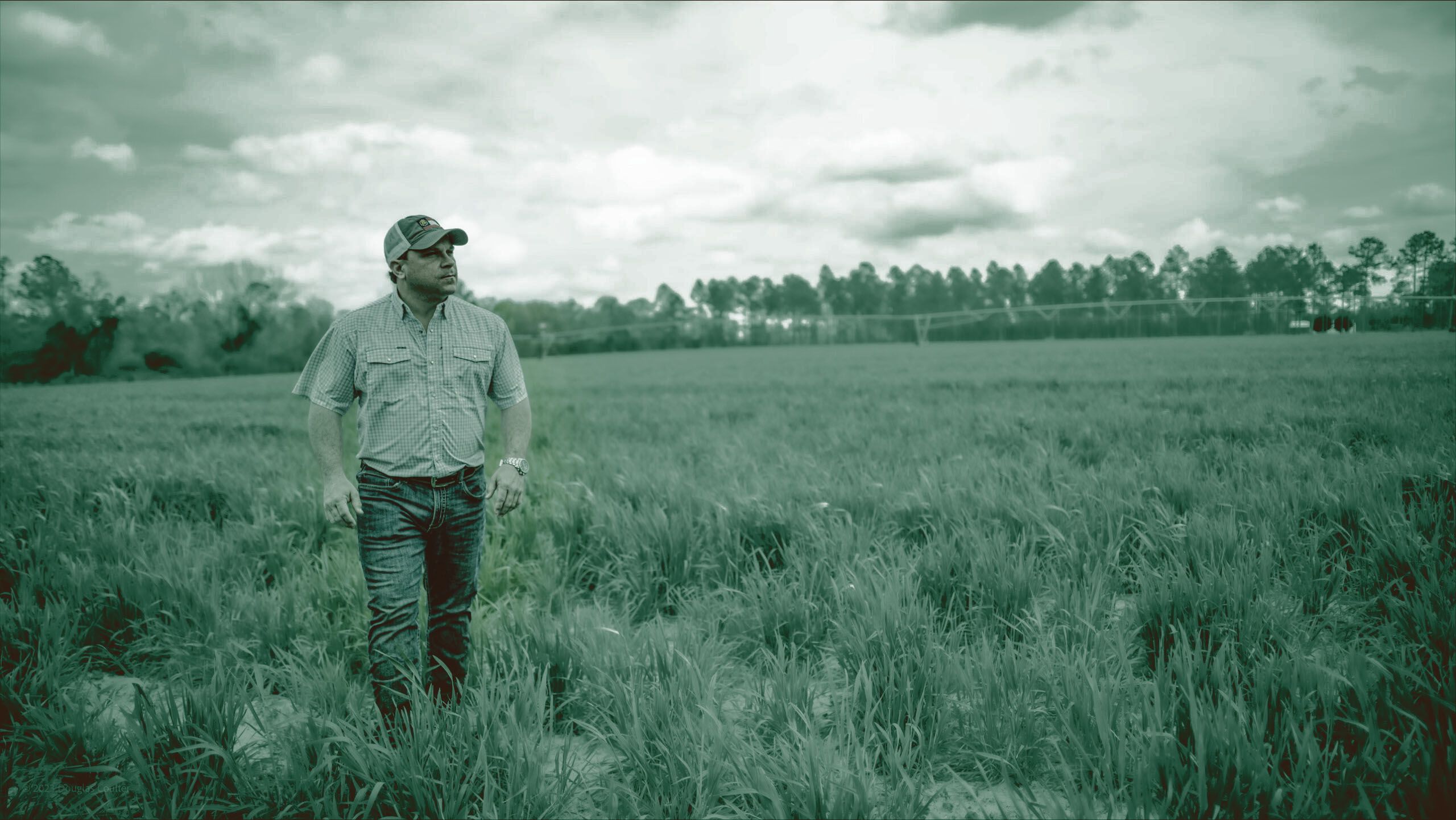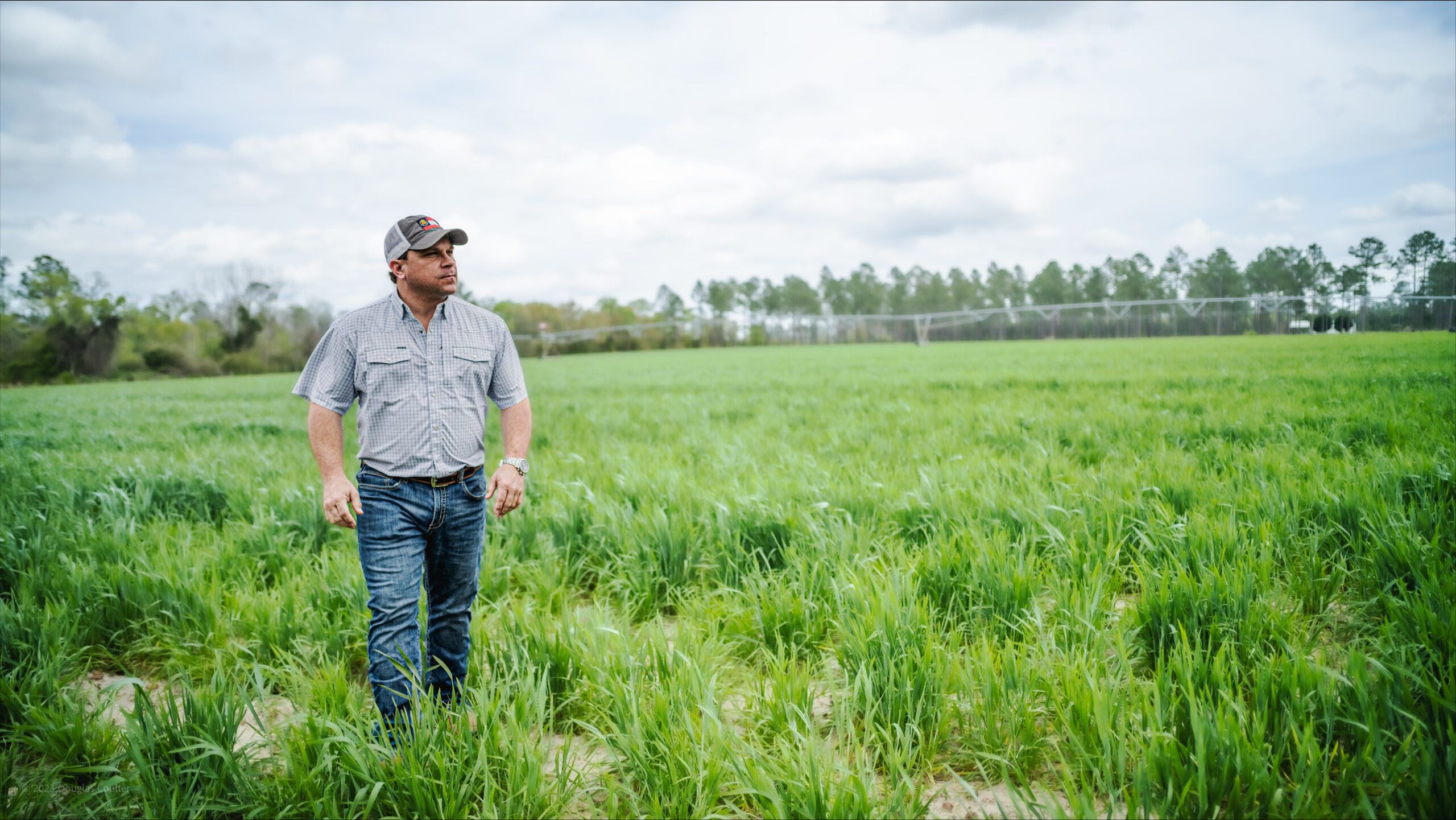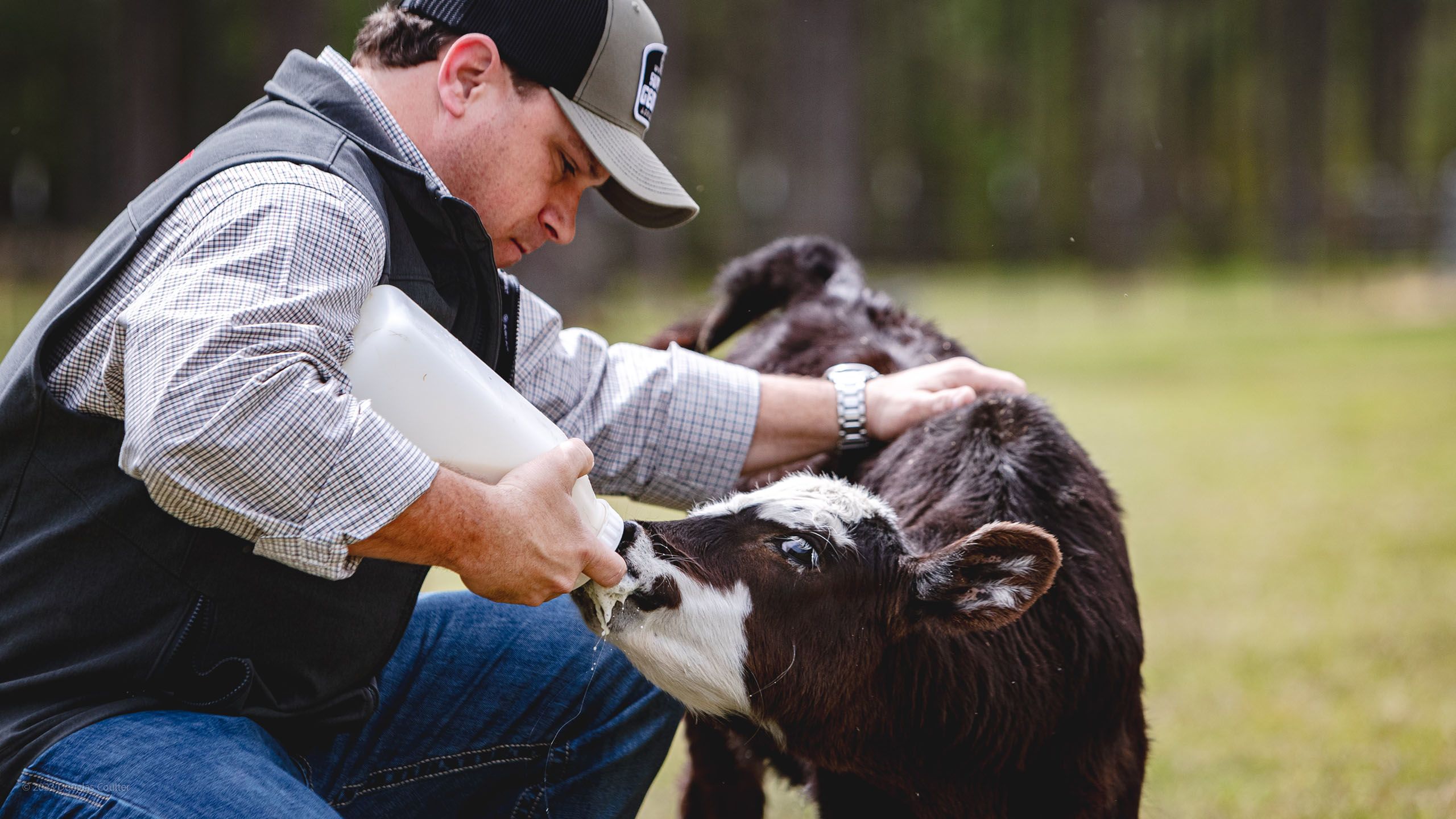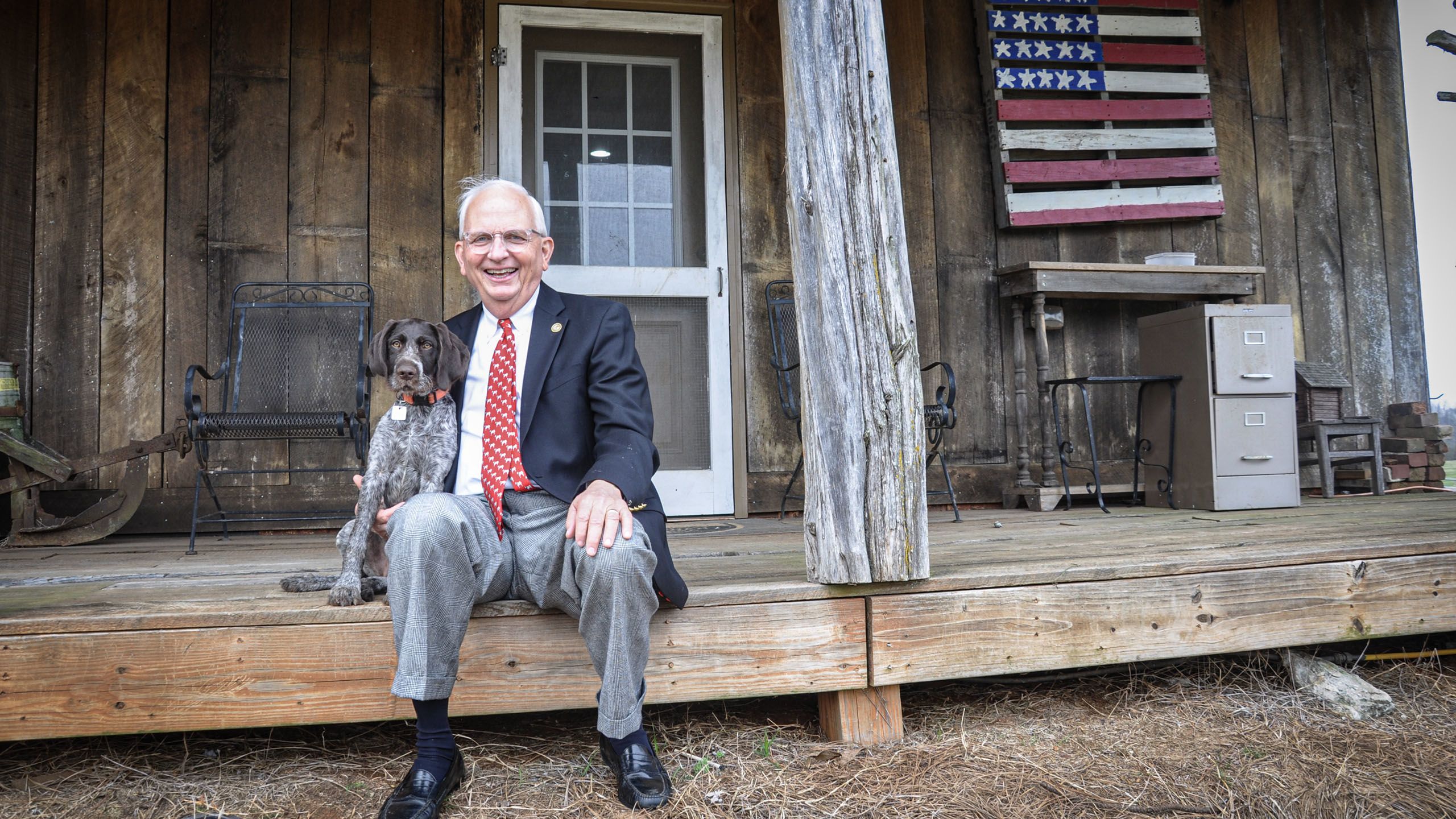THE NEW FACE OF
Georgia agriculture
As agriculture commissioner, Tyler Harper advocates for the state's top industry



When Tyler J. Harper was sworn in as Georgia’s 17th commissioner of agriculture in January, he became, at 36, one of the youngest ever elected to the position. Alongside his relative youth, Harper brings a lifelong love of agriculture and 10 years of experience serving in the Georgia Senate to the top job overseeing the state’s No. 1 industry.
A 2009 agricultural engineering graduate from the University of Georgia’s College of Agricultural and Environmental Sciences, Harper is approaching his new role with the same energy and enthusiasm he exudes in everything he pursues.
Harper was only three years out of UGA when he was elected to the Georgia Senate on Nov. 6, 2012, to serve Georgia’s 7th Senate District. He was sworn in on Jan. 14, 2013, three months shy of his 27th birthday.
“I jumped in with both feet and that’s the way you’ve got to do it. You have to be all in, so that is what I did — I jumped in,” said Harper, who was successful in that election and four more in 2014, 2016, 2018 and 2020, representing his hometown of Ocilla, Georgia, and 10 other counties in south central and southeast Georgia. While in the state Senate, he served as chairman of the Committee on Natural Resources and the Environment, vice chairman of the Committee on Public Safety, and a member of the Committee on Appropriations and the Committee on Agriculture and Consumer Affairs.
A seventh-generation farmer and small businessman, Harper’s introduction to public service came in the form of a Congressional Agricultural Fellowship in the office of former U.S. Sen. Saxby Chambliss while an undergraduate at CAES.
“I was able to work with Sen. Saxby Chambliss when he was a ranking member of the U.S. Senate Agriculture committee. I had some interest in policy when I applied for the fellowship, but when I went up there and had that opportunity to work with Sen. Chambliss, I got bit by the political bug,” Harper said. “I knew I wanted to be involved in some way to give back to our state and to ensure folks have someone working on their behalf every day.”
Harper’s earliest political influence was his grandfather, who served as chairman of the Irwin County Board of Commissioners, and he went on to serve as a volunteer and Irwin County campaign chair in 2006 for Gary Black, his predecessor as Georgia agriculture commissioner and a 1980 graduate of CAES.
“I’m the seventh generation of my family to be involved in the agriculture industry, and we’ve been in Irwin County for more than 125 years. I am proud to keep at it, because if it weren’t for agriculture, I would not have had the success the industry has given me,” said Harper, who is the sole operator of a farm in his hometown of Ocilla, where he produces peanuts, cotton, timber and beef cattle. “Being in the agriculture industry my whole life has played a phenomenal role in who I am and how I approach things. I enjoy the political world and politics, and this role intersects the two things I love, agriculture and politics.”
Harper credits mentors — including his father, Chambliss, former Georgia Rep. Jay Roberts and former U.S. Secretary of Agriculture and current University System of Georgia Chancellor Sonny Perdue — for inspiring him in his career.
Harper appreciates the efforts former Commissioner Black rendered to make his transition into office as seamless as possible.
“We had plenty of opportunity to sit down and have discussions in regard to taking on the new role,” Harper said. “I appreciate his insight and the work he and his team did to ensure a smooth transition so that, when we walked through the door on Jan. 12, we could hit the ground running.”


Former Agriculture Commissioner Gary Black poses with OP, his German wirehaired pointer and the mascot for his new consulting firm, On Point Strategies. (Photo by Maria M. Lameiras)
In preparing for his exit from office, Black tasked the staff of the Georgia Department of Agriculture with creating a 268-page transition handbook to pass along to Harper, outlining important information such as organizational structure, an outline of current challenges, and a five-year plan for meeting those challenges.
“I didn’t have a handbook when I got there, but I made sure I left one,” said Black, who is proud that a fellow CAES alumnus is continuing in the office. “I think in any position like that, that’s the only responsible thing to do. I think that’s probably one of the more difficult parts of leadership. You’re coming into something that you have to make your own, but there has to be some blueprint to know how it worked before so you can figure out how to make it work now.”
Black had three pieces of advice for his successor, “One, you have to have a lot of friends and you have to have a lot of advisers, but you cannot manage by committee. You have to make the call. Two, you have to be intentional about your decisions. And three, you’re going to have to make a lot of tough calls and some of those tough calls are not going to make some of your friends happy.”
Along with building critical infrastructure to support Georgia’s agriculture industry, one of Harper’s goals as agriculture commissioner is setting the example for other young people to pursue a career in agriculture.
“We must continue to find ways to invest in new generations when we invest in agriculture and encourage young people to pursue agriculture,” he said. “We need farmers and producers — the average age of farmers across America continues to increase — but there are many other ways to be involved in agriculture and I encourage young men and women to get involved in the industry.”
Harper credits CAES with educating and preparing the next generation of leaders in the agriculture industry and he plans to support the present and the future of the industry as agriculture commissioner.
“The University of Georgia is doing a phenomenal job and we will continue to partner with the university to remain on the forefront of agricultural innovation and technology, creating new opportunities in precision agriculture. We want to ensure we have the resources we need to be on that cutting edge with our partners across the state,” Harper said. “It is also about telling our story. We can do a better job of helping Georgians understand what agriculture is today, what the Georgia Department of Agriculture does and why it is vital. Agriculture plays a significant role in Georgians’ lives every single day.”
Did you enjoy this story?
Check out recent issues of the Almanac for more great stories like this one.



